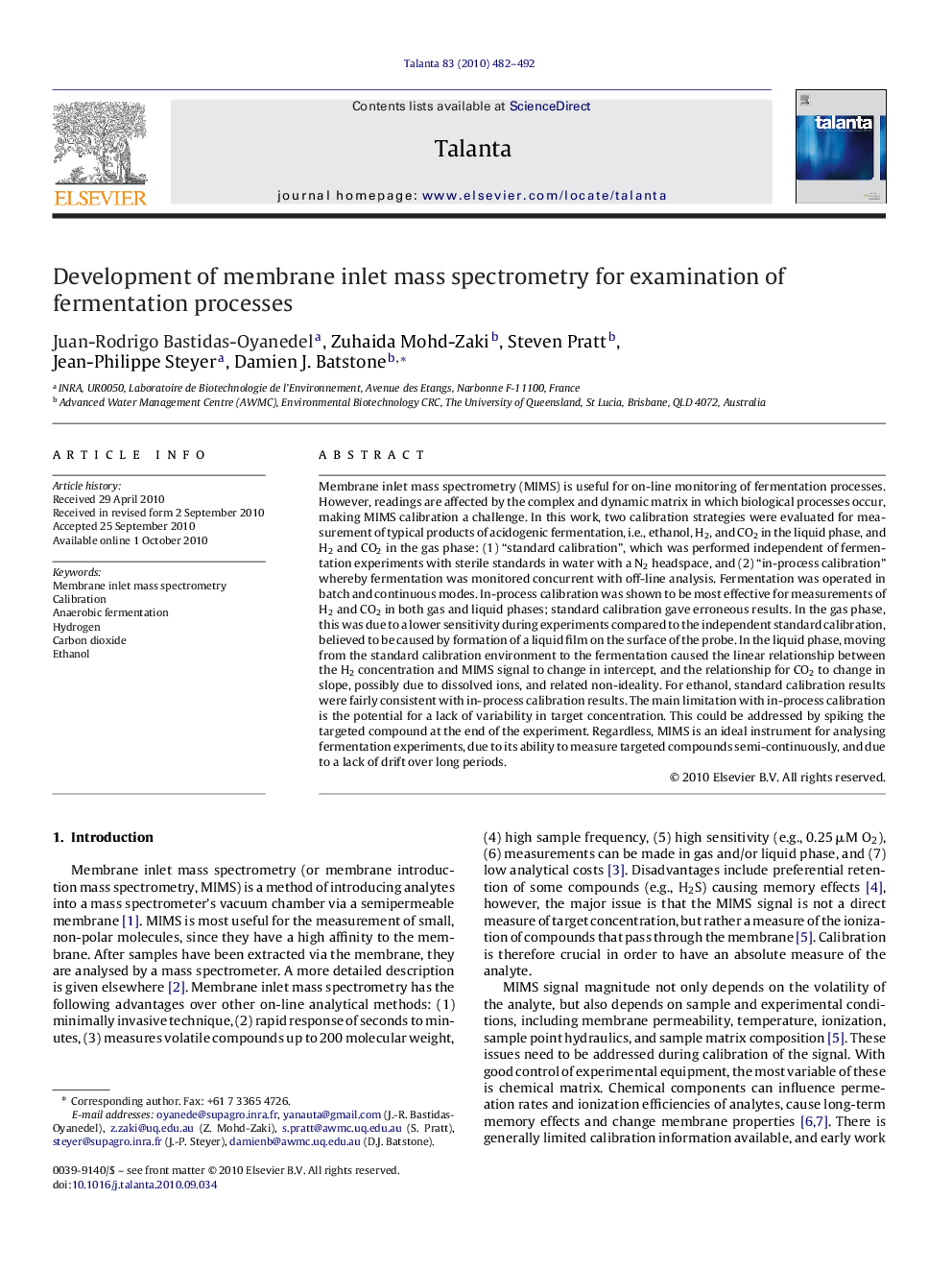| Article ID | Journal | Published Year | Pages | File Type |
|---|---|---|---|---|
| 1242833 | Talanta | 2010 | 11 Pages |
Membrane inlet mass spectrometry (MIMS) is useful for on-line monitoring of fermentation processes. However, readings are affected by the complex and dynamic matrix in which biological processes occur, making MIMS calibration a challenge. In this work, two calibration strategies were evaluated for measurement of typical products of acidogenic fermentation, i.e., ethanol, H2, and CO2 in the liquid phase, and H2 and CO2 in the gas phase: (1) “standard calibration”, which was performed independent of fermentation experiments with sterile standards in water with a N2 headspace, and (2) “in-process calibration” whereby fermentation was monitored concurrent with off-line analysis. Fermentation was operated in batch and continuous modes. In-process calibration was shown to be most effective for measurements of H2 and CO2 in both gas and liquid phases; standard calibration gave erroneous results. In the gas phase, this was due to a lower sensitivity during experiments compared to the independent standard calibration, believed to be caused by formation of a liquid film on the surface of the probe. In the liquid phase, moving from the standard calibration environment to the fermentation caused the linear relationship between the H2 concentration and MIMS signal to change in intercept, and the relationship for CO2 to change in slope, possibly due to dissolved ions, and related non-ideality. For ethanol, standard calibration results were fairly consistent with in-process calibration results. The main limitation with in-process calibration is the potential for a lack of variability in target concentration. This could be addressed by spiking the targeted compound at the end of the experiment. Regardless, MIMS is an ideal instrument for analysing fermentation experiments, due to its ability to measure targeted compounds semi-continuously, and due to a lack of drift over long periods.
